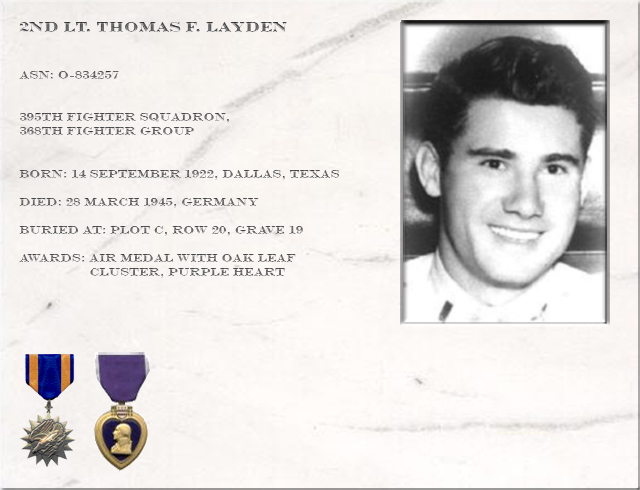

2nd Lieutenant Thomas Frederick Layden was born and raised in Dallas, Texas and was the son of Mr. Peter J. Layden (1895)and Mrs. Francis Bavouset (1899). He had three brothers named Peter, Jerry and Bob. Peter J. Layden Jr., who also served as a pilot with the Airforce, later became a baseball star. Thomas' father was a well-known football coach in Texas who died in 1948 after a car accident.
Thomas Layden graduated from Adamson High School and the University of Texas, where he majored in geology.
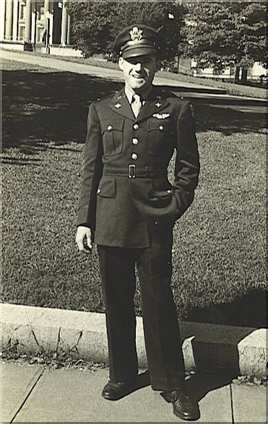 |
Lt.
Thomas F. Layden |
Thomas entered the service in February 1943 and left for the ETO in December 1944. He served with the 395th Fighter Squadron ('Panzer Dusters')of the 368th Fighter Group ('Nulli Secundus') as a P-47 Thunderbolt pilot.
The 368th Fighter Group was
activated on 1 June 1943 and the pilots were trained with P-47's. The Fighter
Group began operations with the Ninth Tactical Air Force, 71st Fighter Wing,
in March 1943 followed by making strafing and bombing attacks on airfields,
rail and highway bridges, trains, vehicles, flak positions, and V-weapon sites
to help prepare for the invasion of France.
The 368th supported the landings in Normandy early in June 1944 and aided in
the taking of Cherbourg, participated in the air operations thatprepared the
way for the Allied breakthrough at St Lo on 25 July, and supported ground forces
during their drive across France. The Fighter Group continued to support ground
forces, participated in the assault against the Siegfried Line, and took part
in the Battle of the Bulge (December 1944 to January 1945) by attacking rail
lines and trains, marshalling yards, roads and vehicles, armored columns, and
gun positions. The unit operated with the Allied forces that pushed across the
Rhine and into Germany. After V-E Day, served with the army of occupation, being
assigned to the United States Air Forces in Europe.
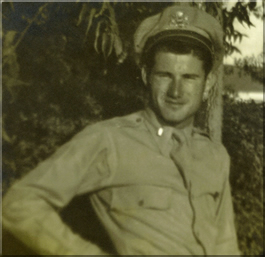 |
Lt.
Thomas F. Layden |
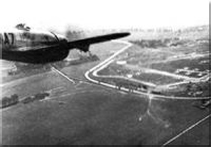 |
In the waning days of the war Thomas Layden was at first reported missing after a late March combat mission east of Giessen, Germany, but later the War Department declared the pilot as being Killed in Action on 28 March 1945.
Sixty years later, Horst Jeckel, a German amateur researcher specialised in WWII plane crashes, read a book titled "Erlebnisse eines Jungen in schlimmer Zeit" (transl. Experiences of a boy in times of hardship), written by now 76-year-old Walter Ranft. In one of the chapters of the book Mr. Ranft tells the story of an American pilot who was taken prisoner in March 1945 after his plane was downed.
Horst Jeckel contacted Walter Ranft after reading this story and showed Mr. Ranft a "MISSING air crew report" of the 395th Fighter Squadron, 368th Fighter Group dated 30 March 1945. From this report it bacame clear that 2nd Lt. Thomas F. Layden left from Metz, France, with a P-47 "Thunderbolt" on the 27th of March 1945 in Metz, France, to participate in an attack on a large convoy (probably on the A5 Highway in the Giessen district) where he was last seen. According to wingcommander Lt. "Homicide" Homer Hayes, who was contacted by Horst Jeckel, there was no witness as to what happened with Lt. Layden. "From one second to another he just dissappeared". From a drawn map, accompanying the missing air crew report, it was deducted that Lt. Layden's plane crashed somewhere between the German towns of Beuern and Bersrod.
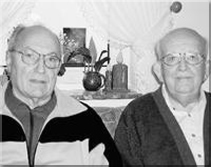 |
| Mr. Ranft and Mr. Schwalb, 2005 |
Mr. Ranft immediately recognised the crash site and recalled the American pilot walking towards Walter Ranft and one of his friends, Heinrich Schwalb. After witnessing one of the American fighter planes coming down, they also concluded that the pilot had bailed out in time, as they saw a parachute in the distance. The two boys ran to the location where they expected the plane to have crashed. There they were startled by the sight of a tall man, wearing a brownish "pilot-outfit", walking directly towards them. While passing the Walter and Heinrich, the supposed P-47 Pilot, obviously nervous, greeted the boys in English with : 'Good Evening'.
For the two German boys there could be no mistake, this man had to be the American pilot. That was definitely English they heard. So they decided to follow him. After they had caught up with the American, Heinrich called: "Halt, Kamerad, Stopp!" (transl. "Stop, Comrade, Stop!". The American pilot reacted immediately and halted. "Verstehst Du kein Deutsch?" ("don't you understand German?")the boys asked, to which Thomas Layden replied : "no, no, you are German boys ?" Walter and Heinrich just answered with "no, no", after which Thomas continued his way to the wooods.
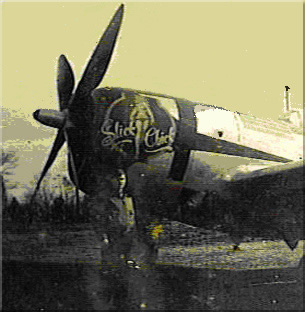 |
Lt.
Thomas Layden with "Slick Chick" |
Some nearby German soldiers were alerted by Walter and a young corporal of the 'Waffen SS' was able to catch up with the P-47 pilot and directed his submachine gun at Thomas Layden and shouted "hands up". It was clear that Lt. Layden was as frightened as the two boys were. Thomas Layden was taken prisoner and handed over to a Lieutenant of the German Army who had a brief interrogation of the U.S. pilot, who after all had some command of the German language. The German officer made a written report of the interrogation. Heinrich Schwalb had the impression that Thomas Layden, in a certain way, felt relieved to be in the custody of this German officer who appeared to be very calm and balanced, despite the pressure of American troops closing in the area.
After the area was indeed taken by the American troops the next day, Walter Ranft speculated and believed that Thomas F. Layden probably was freed by the U.S. troops, untill Horst Jeckel showed him another document which stated : 2nd Lt. Thomas F. Layden, died 28 March 1945, buried at American Cemetery Margraten, the Netherlands.
So one question remains : what happened to Lt. Thomas Layden just one day before U.S. troops took control over the area ? Was he killed in the firefights between the rapidly advancing American troops and the German defenders. Was he killed in yet another allied air-raid or was Lt. Layden just a burden to the retreating German troops and killed by them ?
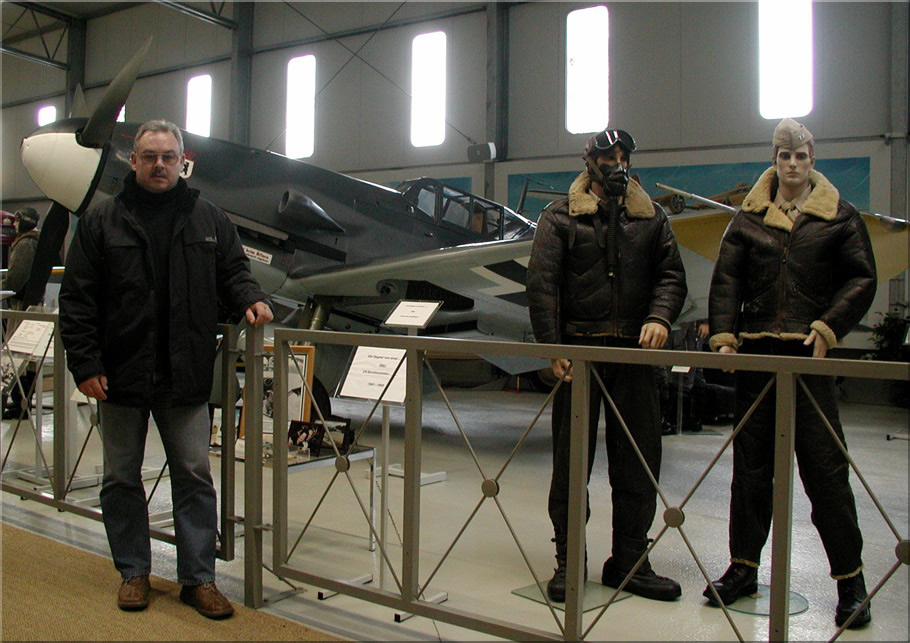 |
Horst
Jeckel is continuing his research in the hope of finding some answers
to the questions pertaining to Lt. Layden. |
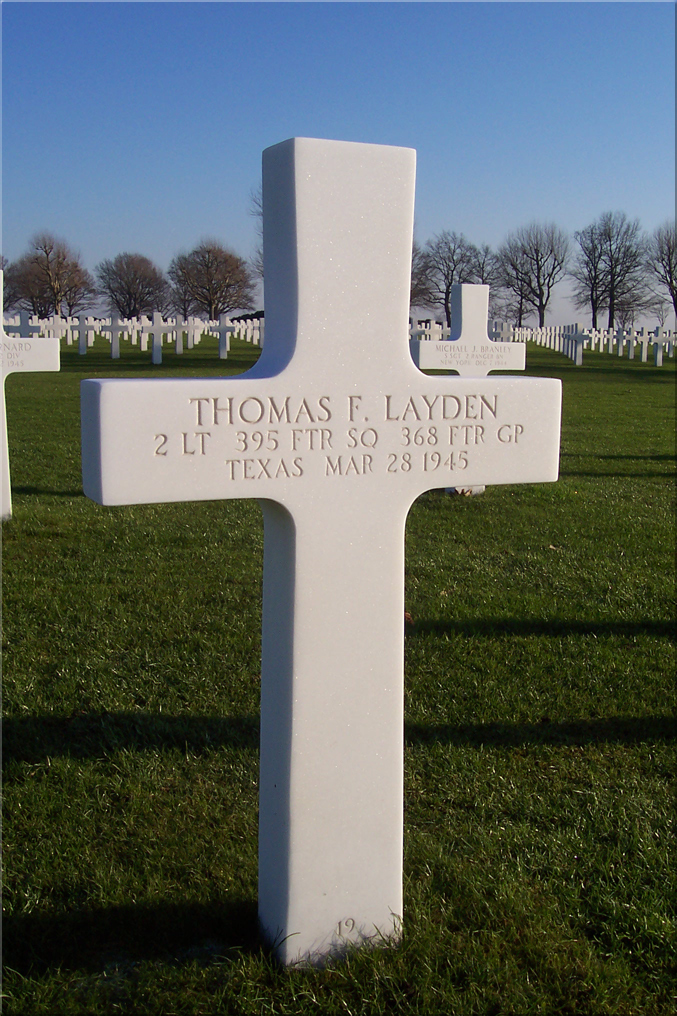 |
|
Lt. Thomas F. Layden's grave, Jan.2006 |
| A
special word of gratitude for sharing information is going out to :
Mr. Horst Jeckel, researcher of WWII planecrashes in Germany Mr. Walter Ranft, author of the book : "Erlebnisse eines Jungen in schlimmer Zeit" Mr. Heinrich Schwalb, witness of Lt. Layden being taken prisoner of war |